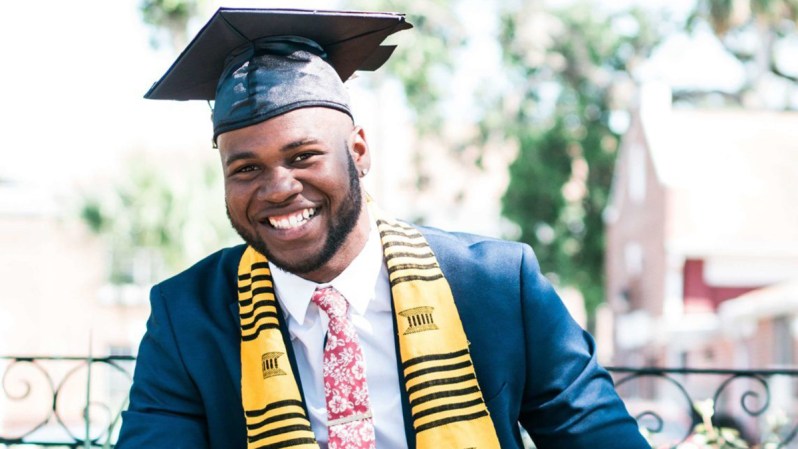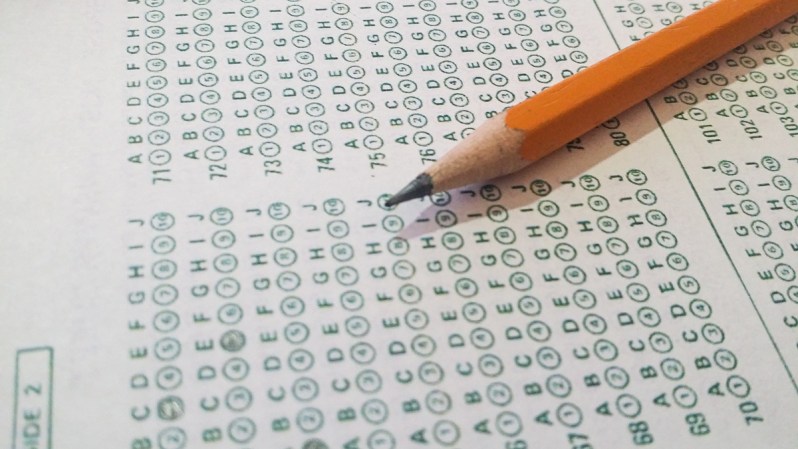Applying to graduate school can be nerve-wracking, even for students who have just completed their undergraduate work. It can be even more intimidating if it’s been a long time since you were in school. Between choosing the right university, filling out applications, and cramming for exams, the whole process can make you feel painfully rusty. Knowing what to expect and how to prepare can boost your confidence and keep you from getting overwhelmed. Here’s our advice on how to apply to grad school and make sure your exam scores are at their best … especially if it’s been a while since you were an undergrad.
What to Expect on Your Grad School Application
There are several things you’ll need to submit with your application. For starters, you’ll need to have your undergrad alma mater send over official copies of your transcripts. You can request transcripts through your alma mater’s website and, in most cases, you can have them sent in either an electronic or hard copy format. Most graduate schools will accept electronic delivery of your transcripts, but you should always check the guidelines of the university you are apply to before ordering so you don’t end up paying processing fees for transcripts that won’t be accepted. Some applications require you to report a self-calculated undergraduate GPA, in which case you’ll likely need to have an unofficial copy of your transcripts sent directly to you. While it’s never a bad idea to have a copy of your transcripts on hand for reference, these unofficial copies will not be accepted if you submit them with your graduate application — all official transcripts must come directly from your previous school, not from you. If you attended multiple undergraduate schools, be sure to request transcripts from each one, even if your credits were transferred.

Another key element of your graduate application is your Statement of Purpose or Statement of Intent. This is something like a cover letter, and will typically have a maximum word limit of around 500. Every college will have its own prompt for what you include in your Statement, but it should generally cover: your reasons for choosing the degree you’re pursuing, your goals after receiving your degree, why you think that specific school is a good fit for you, and a brief description of any work experience related to your field of study. Your Statement should be professionally written and formatted, but should also serve to give the admissions staff an insight into your personality. Don’t make it so formal that it comes off as dry. Just like a cover letter for a job application, part of the goal of your Statement of Purpose is to leave an impact on the folks who decide whether you’re accepted. Once you’ve got a first draft of your Statement, send it to anyone willing to proofread it for you. Receiving varied feedback will not only help you spot any errors, it will give you perspective on ways you may want to alter the tone or content.
Along with your transcripts and Statement, you’ll need to supply a resume and one or more Letters of Recommendation. Recommendation Letters should always come from professors or professional supervisors, never from family or friends. You should also never, ever write your own recommendation letter and then ask someone else to sign it. If a requester asks you to do this, just assume they’re not interested in taking the time to do you this favor and move on. Aside from being blatantly dishonest, it also defeats the purpose. The point of the letters is to give your grad school an idea of your work ethic, experience, and skills so they can gauge your ability to succeed in their program. No college is interested in admitting dishonest students, so don’t risk leaving a bad impression. You should select recommenders that have a good sense of your capabilities, like supervisors you’ve worked closely with and professors that you had substantial interaction with in school.

Remember: When requesting letters of recommendation that you are asking someone to take time out of their lives to do you a solid. It’s good to be forward about your goals (providing them with a copy of your Statement of Purpose is a great way to do so), but be gracious and make sure you’re giving them plenty of notice. Don’t put off requests for letters of recommendation until the last minute. It’s not just rude, it increases the risk that your requestees won’t be able to submit the letters on time, which could delay your application. Depending on your chosen school, you may or may not have the option to view your recommendation letters once they’re submitted.
When you’ve been out of undergrad for a long time, it can seem strange at first to reach out to professors you haven’t had contact with since graduation. If it’s been a hot minute since you were in school, send along a reminder of your work when you contact former professors. Let them know when you were a student, as well as which of their courses you were enrolled in. Dig up an old paper or project you did for them and include that in your request. Even if they don’t instantly recognize you by name, your work will help to refresh their memory. Give them an update on what you’ve been up to since graduation, so they can get a clearer idea of your career and goals. Writing Letters of Recommendation is standard fare for professors, so chances are they’ll be more than happy to oblige. You should receive notification when letters have been submitted, so be sure to follow up and thank anyone who took the time to write one.
Once you’ve got your transcripts, resume, Statement of Purpose, and Letters of Recommendation on their way, you’re getting awfully close to finishing your application. For some schools, this may wrap up everything you need, but for most, there’s one more crucial bit of information you’ll need to supply: test scores.
Common Grad School Tests
There are a few different graduate entrance exams, and which ones you’ll need to take will largely depend on the schools you’re applying to and the degree you plan to pursue. Some universities will state that they don’t require exam scores, but will give you the option to submit them anyway. In these cases, it’s a good idea to go ahead and take the exams and submit your scores, as it can help your chances of acceptance.

The GRE
The Graduate Record Examination, or GRE, is a general test that’s sort of like the SAT of grad school. It’s broken into three sections: Analytical Writing, Verbal Reasoning, and Quantitative Reasoning. It’s designed to give schools a sense of your ability to do the type of comprehension and reasoning work that you’ll need to in your studies. The good news is that the concepts tested on the GRE are ones that you learned in high school — there’s no trigonometry, calculus, or other higher-level math, for example. The less great news is that if it’s been a while since you were in school, you’ve probably forgotten a lot more of these basic concepts than you realize.
Luckily for anyone who faced with tackling the GRE, the Internet is a thing. As such, there are plenty of resources available to help you study. The first place to look to is ETS (Educational Testing Service) — they create the exam, so they’re the most reliable source. On their website you’ll find an overview of each section of the test, information on how scores are calculated, timed and untimed practice tests, digital and hard copy study guides, and samples of every type of question on the exam (including a list of every possible essay prompt). Any practice test you take through ETS will be in the exact same format as the official test, so it’s the best way to get a feel for navigating the exam.
To supplement study materials from ETS, you can look to Kaplan, PrepScholar, and Khan Academy, which have a huge selection of video courses that can help you re-learn mathematical concepts and formulas. For the Verbal Reasoning section of the exam, old-school flashcards are the way to go. Use the waterfall method to help you learn common GRE vocab. There are also several websites where you can create and share digital flashcards, like Quizlet, Cram, and Brainscape. Magoosh has a mobile app that lets you study sample test questions on your phone or tablet.
The GRE can be administered as either a paper or computer exam, and the version you take is likely to depend on your testing location. Make sure you’re taking practice tests in the format of your final exam so you’re as familiar with it as possible on test day. For both versions, you can answer the questions in a specific section in whatever order you like, and you can continue to revisit questions and change your answers for as long as you have time remaining. No matter where you take your test, you are not allowed to bring anything into the exam room with you, but you will be given scrap paper, pencils, and a calculator when you begin the test (the computer version includes an on-screen calculator).
The GMAT
Another common graduate entrance exam is the Graduate Management Admission Test, or GMAT, which is similar to the GRE but is targeted for students who are pursuing a business degree. This exam has four sections instead of three: Analytical Writing, Integrated Reasoning, Verbal Reasoning, and Quantitative Reasoning. Aside from the Writing section, all GMAT questions are in multiple choice format. The Verbal and Quantitative Reasoning sections are much like their counterparts in the GRE, though you can expect a slightly higher level of difficulty. The Integrated Reasoning section was added to the GMAT in 2012 in response to the increasing prevalence of technology and massive access to data. It is designed to test your ability to evaluate information in different formats and from multiple sources.
The creator of the GMAT is GMAC (the Graduate Management Admission Council), and you can visit the website to learn more about the structure of the test and how scores are determined. GMAC also provides practice exams, sample questions, and study guides. Just like ETS for the GRE, GMAC should be your first stop in prepping for the exam since the material will best reflect the official test. For additional practice, you can look to Manhattan Prep and Veritas Prep, as well as many of the same resources for GRE prep, like the aforementioned Magoosh and PrepScholar.
All GMAT exams are delivered via computer. While test-takers can choose which order to complete the sections of the GMAT in, you can not skip and revisit questions the way you can in the GRE.
Other Exams
Depending on your intended field of study, your school may require a GRE Subject Test, a more focused exams in specific subjects like Biology and Physics. Information and guides for these exams are available on the ETS website as well.
If English is not your first language, you may be required to take the TOEFL (Test of English as a Foreign Language) or IELTS (International English Language Testing System) exams to test your proficiency. Both tests are also made by ETS, and their website offers plenty of information on the format, delivery method, and preparation.
For anyone pursuing a Law or Medical degree, you’ll need to prepare yourself for the big Kahunas: the LSAT and MCAT, respectively. More information on these exams can be found through the Law School Admission Council and the Association of American Medical Colleges.
Study Tips
No matter which exams you’ll be taking, there are a few general study tips that apply. First and foremost, give yourself lots of time to prepare. Most students spend one to three months prepping for their graduate exams, and your minimum amount of time spent studying should be no less than 40 hours. No matter how confident you feel, you should get the ball rolling on test prep far ahead of your application deadline. For both the GRE and GMAT, you’ll be able to see your preliminary scores on the day you complete the exam, at which point you can decide whether to report them or cancel them and retake the test. Once you decide to report your scores, it takes 10 to 15 days for the GRE and 20 days for the GMAT for your final scores to be calculated and sent to your schools. Keep this extra grading time in mind when scheduling your test date to ensure your scores will be in before your deadline.

Speaking of scheduling your test date: do it early. Testing centers only have so many open slots on any given day, and they can fill up fast as application deadlines approach. Schedule your test date as far ahead of time as possible to avoid missing out.
When you first begin studying, start out by taking a practice test. This will help you determine which areas you’re struggling with and can prevent you from spending too much time studying subjects you only need a brief review on. As you study, continue taking practice tests at regular intervals to gauge your progress and continue focusing your efforts. Taking multiple practice tests will also help you become familiar with the exam format. When taking practice tests, replicate the conditions of the official exam as closely as possible: take them at the same time your official test is scheduled for, in a quiet room with no music or distractions. Make sure you take timed practice tests so you know how you’ll need to pace yourself. Limit yourself to a couple pages of scrap paper, make notes in pencil, and use the on-screen calculator provided.
For essay questions, scorers care most about whether you can construct a logical, organized argument, not about how snappy your writing is. Don’t try to squeeze in words if you’re not sure of their meaning, or pour so much effort into making your essays flashy that your argument suffers. The most important thing is to make sure that you are following exactly what the prompt asks of you, that your essay flows logically, and that your points are well thought-out.
On test day, answer every single question, even if you’re not sure of the correct response. Leaving a question unanswered guarantees no points, whereas making your best educated guess has the potential to earn points. You don’t lose points for answering a question incorrectly; you just don’t earn any.
Contact Your Schools
Once you’ve submitted everything you need to for your applications, reach out to an admissions counselor to make sure there’s nothing else you can or should submit to help your chances of acceptance.
Applying to a graduate program can be a long and involved process, especially if you’re applying to several colleges at the same time. No matter how many schools you’re applying to, how long it’s been since undergrad, or which exams you’ll be taking, starting your applications and studying for exams early will prevent burnout and help you reach your goals.





